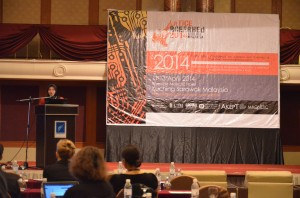As i inform earlier in this post on Doctoral Consortium as well as in this post that I attend LaTiCE 2014 in conjunction with RCEE & RHEd 2014 to present my paper. For your information, all paper presented in this conference will be indexed in IEE Explore which is included in SCOPUS and ISI.
Alhamdulillah, 2 of my paper had been accepted to be presented during this conference.
The title of my first paper ( some finding based on my PhD research) is
“Application of the Pedagogical and Andragogical Model in Web-Based Learning Instruction among Non-Major Computer Science Students Learning Programming”
Abstract for my paper is as follows:
This study identified the pedagogical and andragogical learning orientations preferred by non-major Computer Science students in one of the higher education institutions in Malaysia. The pedagogical and andragogical learning orientation model differs in six assumptions about learners, which are: the learner’s need to know, selfconcept, existing experience, readiness to learn, orientation to learning, and motivation [1]. Questionnaires were developed and distributed among 262 undergraduate students in non-major Computer Science Faculty who took the Introduction to Programming Language course. Descriptive analyses have also been conducted (alpha – 0.958), and the results showed that a majority of the sample in this study (246 respondents or 93.9%) stay under Stage 2 in the four stages of learning development. This means that the respondents had a high preference for pedagogical as well as andragogical learning orientations. Data collected shows that non-major Computer Science students in the age range of 18 to 24 are able to work independently since their self-concept had progressed to the self-directed learning phase. However, they still need guidance from their lecturers. These findings were used to develop a prototype of an individualized online learning environment based on the pedagogy and andragogy as its foundational model. Learners in Stage 2 need goal-setting, learning strategies, and evaluation to be set by the teacher. The online learning environment allowed the student to explore her learning modules from easy to hard levels. However, students were allowed to continue to the next module even though their performance was not yet at the passing level. This is based on andragogical theory; that they are dependent learners with a moderate level of self-directedness. Additional learning materials were also provided that could be freely explored by learners at their own pace. The prototype was tested among one group of 32 students in the Faculty of Education in the course Introduction to Programming using Pre-Experimental Research Design. The statistical analysis conducted indicated that the application of the pedagogical and andragogical Model in web based instruction had a positive effect on learners’ outcomes.
Keyword: pedagogy, andragogy, learning programming for non-majors
This paper can be found in IEEE Explore,
PROCEEDING ISBN : 978-1-4799-3592-5/14
DOI : 10.1109/LaTiCE.2014.27
